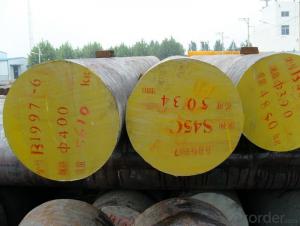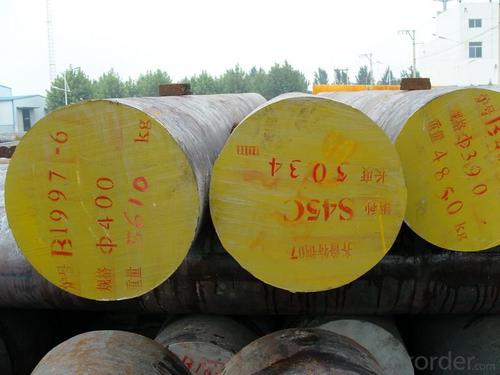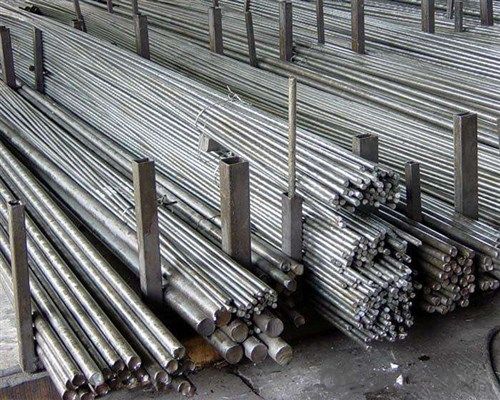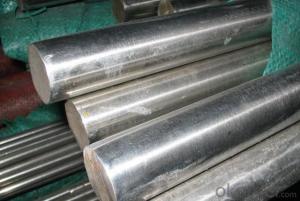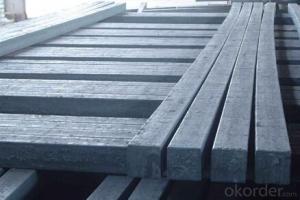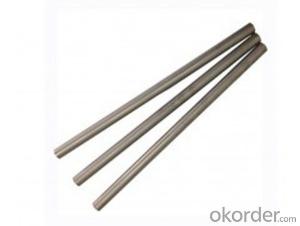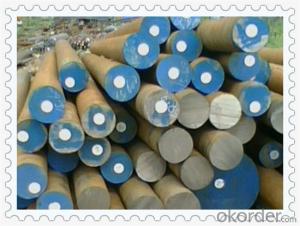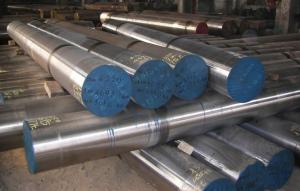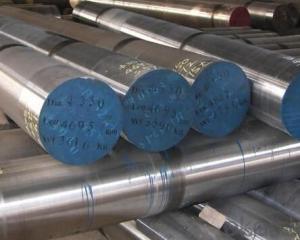Special Steel SUJ2 Bearing Steel Round Bar
- Loading Port:
- China main port
- Payment Terms:
- TT OR LC
- Min Order Qty:
- 30 m.t.
- Supply Capability:
- 10000 m.t./month
OKorder Service Pledge
OKorder Financial Service
You Might Also Like
Specification
Product information:
Standard | JIS | ||||||||||
Grade | SUJ2 | ||||||||||
MOQ | 1 Metric Ton | ||||||||||
Diameter | 8mm~1500mm | ||||||||||
Length | 6m,12m or as required. | ||||||||||
Diameter Tolerance | within the allowable range or as required. | ||||||||||
Condition of delivery | Hot rolled (forged) without annealing,annealing,cold drawn,polished or as required. | ||||||||||
Chemical Composition(%) | |||||||||||
C | Si | Mn | P | S | Cr | ||||||
0.95-1.05 | 0.15-0.35 | 0.25-0.45 | ≤0.025 | ≤0.025 | 1.40-1.65 | ||||||
Ni | Mo | Cu | Ni+Cu | ||||||||
≤0.30 | ≤0.08 | ≤0.25 | ≤0.50 | ||||||||
Mechanical Properties(In Quenching and Tempering) | |||||||||||
Tensile strength | Yield strength | Elongation | Reduction in Area | Impact | Hardness | ||||||
(σb/MPa) | (σs/MPa) | (δ5/%) | (ψ/%) | (J) | (HRC) | ||||||
861.3 | 518.42 | 27.95 | -- | -- | 25.8 | ||||||
Product Show:
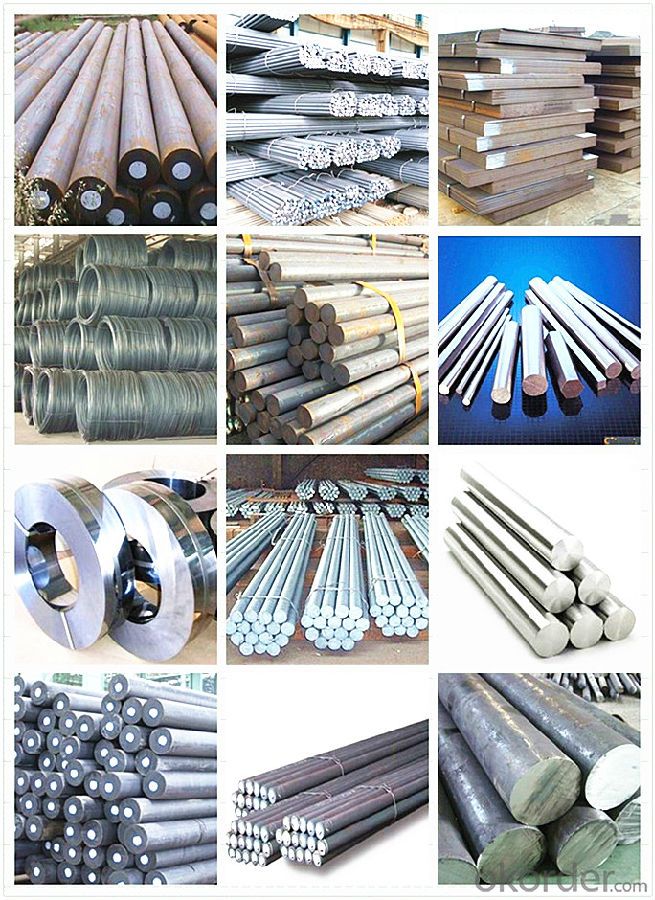
Workshop Show:
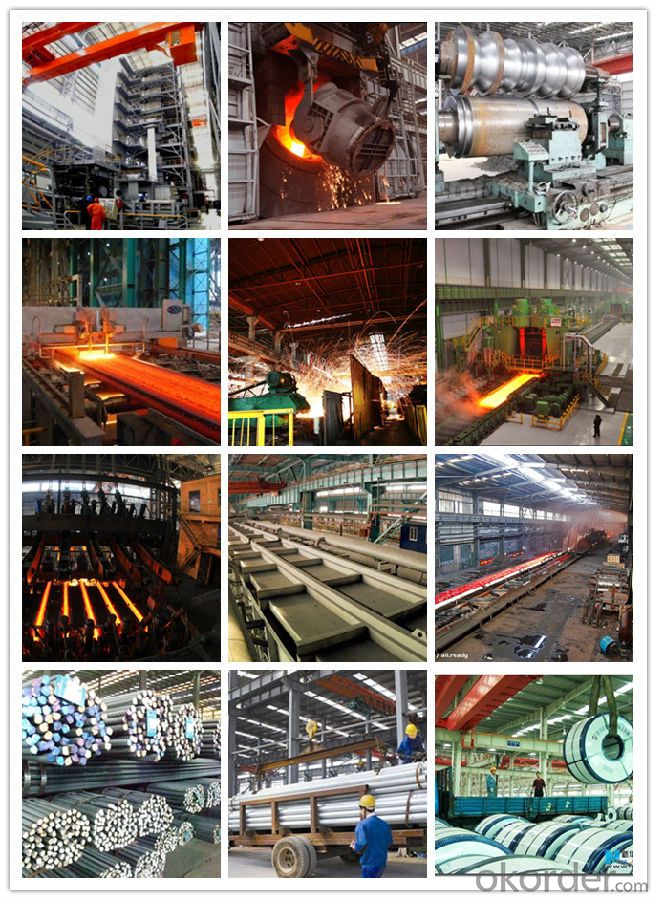
Shipping
1. FedEx/DHL/UPS/TNT for samples, Door-to-Door;
2. By Air or by Sea for batch goods, for FCL; Airport/ Port receiving;
3. Customers specifying freight forwarders or negotiable shipping methods!
Delivery Time: 3-7 days for samples; 5-25 days for batch goods.
Payment Terms
1.Payment: T/T, L/C, Western Union, MoneyGram,PayPal; 30% deposits; 70% balance before delivery.
2.MOQ: 1pcs
3.Warranty : 3 years
4.Package Informations: 1) EXPORT, In 20 feet (GW 25 ton) or 40 feet Container (GW 25 ton)
2)as customer's requirement
Why choose us?
(1) The leading exporter in China special steel industry.
(2) Large stocks for various sizes, fast delivery date.
(3) Good business relationship with China famous factories.
(4) More than 7 years steel exporting experience.
(5) Good after-sales service guarantee.
- Q: How does special steel perform in terms of creep resistance?
- Special steel typically performs very well in terms of creep resistance. Due to its unique composition and heat treatment, it can withstand high temperatures and prolonged stress without deforming or failing. This makes it an excellent choice for applications that require long-term stability under extreme conditions, such as in power plants or aerospace industry.
- Q: Can special steel be used in the production of gears?
- Yes, special steel can be used in the production of gears. Special steel, such as alloy steel or tool steel, is often preferred in gear manufacturing due to its high strength, wear resistance, and ability to withstand heavy loads and high temperatures. This steel type ensures gears have the necessary durability and performance required for various applications.
- Q: How does special steel contribute to the oil and gas machinery industry?
- Special steel plays a crucial role in the oil and gas machinery industry by offering exceptional strength, durability, and corrosion resistance. It is commonly used in the manufacturing of drill pipes, valves, pumps, and other critical components. The high tensile strength of special steel ensures the safe and efficient extraction of oil and gas, while its resistance to extreme temperatures and harsh environments enhances the reliability and longevity of machinery. Additionally, special steel's ability to withstand high-pressure conditions and prevent leakage makes it an essential material in the oil and gas sector.
- Q: How are tungsten alloys used in the defense industry?
- Tungsten alloys are commonly used in the defense industry due to their exceptional properties such as high density, strength, and resistance to heat and corrosion. These alloys are used in various applications including armor piercing ammunition, kinetic energy penetrators, and armor plating for military vehicles and aircraft. Their ability to withstand extreme conditions and penetrate hardened targets make tungsten alloys vital for enhancing the effectiveness and protection capabilities of defense systems.
- Q: What are the different methods of testing the quality of special steel?
- There are several methods used to test the quality of special steel. 1. Chemical Analysis: This method involves analyzing the composition of the steel to ensure it meets the required chemical specifications. It helps determine the presence and quantity of various elements, such as carbon, manganese, chromium, nickel, and others, which are crucial for achieving specific mechanical properties. 2. Mechanical Testing: Mechanical testing is performed to evaluate the strength, hardness, ductility, and other mechanical properties of special steel. Common tests include tensile testing, which measures the steel's resistance to breaking under tension, and hardness testing, which determines its resistance to indentation or scratching. 3. Non-Destructive Testing (NDT): NDT methods are employed to assess the quality of steel without causing damage. Techniques such as ultrasonic testing, magnetic particle testing, and liquid penetrant testing are used to detect surface and internal defects, cracks, or discontinuities that may affect the steel's integrity. 4. Microscopic Examination: Microscopy is used to examine the microstructure of special steel, allowing for the evaluation of grain size, inclusions, and other structural features. This analysis can provide insights into the steel's properties and potential defects. 5. Corrosion Testing: Special steel often needs to resist corrosion in harsh environments. Various corrosion tests, such as salt spray testing, electrochemical methods, and exposure to corrosive substances, are conducted to assess the steel's resistance to corrosion and determine its suitability for specific applications. 6. Impact Testing: This method involves subjecting the steel to a high-energy impact to assess its toughness and resistance to sudden loading. It helps determine if the steel can withstand sudden shocks or impacts without fracturing. 7. Heat Treatment Analysis: Special steel often undergoes heat treatment processes to enhance its properties. Heat treatment analysis involves examining the microstructure and hardness of the steel after the treatment to ensure it has achieved the desired properties. Overall, the combination of these testing methods helps ensure that special steel meets the required quality standards, ensuring its suitability for various applications, such as construction, automotive, aerospace, and industrial equipment.
- Q: What are the different forging techniques for special steel?
- There are several different forging techniques used for special steel, including open die forging, closed die forging, and ring rolling. Open die forging involves shaping the steel between flat dies or anvils, while closed die forging uses shaped dies to compress the steel into the desired shape. Ring rolling involves shaping the steel by rolling it between two or more dies, creating a seamless ring shape. Each forging technique has its own advantages and is chosen based on the specific requirements of the steel product being produced.
- Q: How does special steel perform in chemical processing applications?
- Special steel is widely used in chemical processing applications due to its excellent performance and unique properties. One of the key advantages of special steel in chemical processing is its high resistance to corrosion. This type of steel is specifically designed to withstand harsh chemical environments, making it highly reliable and durable. In chemical processing applications, where corrosive substances are present, special steel provides superior protection against corrosion compared to other materials. It exhibits exceptional resistance to acids, alkalis, and various chemical compounds, ensuring the integrity and longevity of equipment and components. Moreover, special steel offers excellent mechanical properties, such as high strength and toughness, which are essential in chemical processing applications. It can withstand high temperatures, pressure, and mechanical stresses commonly encountered in these environments. Its robustness and ability to maintain structural integrity under extreme conditions make it a preferred choice for critical components like reactors, vessels, and piping systems. Special steel also contributes to the overall efficiency and safety of chemical processing operations. Its resistance to scaling and fouling reduces the risk of contamination and blockages, minimizing downtime for cleaning and maintenance. This results in improved productivity and cost-effectiveness. Furthermore, special steel is often selected for its hygienic properties, making it suitable for applications in the food and pharmaceutical industries. It is easy to clean and sanitize, ensuring the highest levels of product purity and compliance with industry regulations. In summary, special steel performs exceptionally well in chemical processing applications. Its corrosion resistance, mechanical strength, thermal stability, and hygienic properties make it an ideal choice for equipment and components, enhancing the reliability, efficiency, and safety of chemical processing operations.
- Q: How does special steel perform in high-temperature oxidation conditions?
- Special steel, otherwise known as heat-resistant or high-temperature steel, is designed specifically to excel in conditions of high-temperature oxidation. At elevated temperatures, oxidation occurs as a chemical reaction between the metal and oxygen, potentially resulting in the degradation or failure of the material due to the formation of metal oxides. Nevertheless, special steel contains alloying elements that offer exceptional resistance to oxidation. These alloying elements, such as chromium, aluminum, and silicon, create a protective layer of oxides on the steel's surface when exposed to high temperatures. This layer acts as a barrier, preventing further oxidation of the underlying metal. Moreover, the alloying elements can promote the formation of stable and adherent oxide scales, further enhancing the steel's resistance to oxidation. The outstanding performance of special steel in high-temperature oxidation conditions can be attributed to several factors. Firstly, the alloying elements in the steel composition ensure the formation of a protective oxide layer, effectively shielding against further oxidation. Secondly, the steel's microstructure is specifically designed to maintain stability and retain its mechanical properties even at elevated temperatures. In addition, special steel undergoes stringent heat treatment processes to enhance its resistance to high-temperature oxidation. Heat treatment methods such as annealing, quenching, and tempering optimize the steel's microstructure and eliminate impurities, guaranteeing optimal performance in extreme conditions. In summary, special steel showcases remarkable resistance to high-temperature oxidation conditions due to its carefully chosen alloying elements, tailored microstructure, and optimized heat treatment processes. It provides a dependable and long-lasting solution for various industries that require materials capable of withstanding severe oxidation environments, ensuring optimal performance and durability in these challenging conditions.
- Q: How does special steel perform in cutting applications?
- Special steel is highly regarded for its exceptional performance in cutting applications. Due to its unique composition and properties, special steel exhibits superior strength, hardness, and wear resistance compared to regular steel. These characteristics make it incredibly effective in withstanding the intense forces and pressures involved in cutting processes. Special steel is known for its ability to maintain its shape and sharpness even under extreme conditions. It has a high level of toughness, ensuring that it can withstand repeated impact and resist deformation or breakage. This durability allows it to maintain its cutting edge for an extended period, resulting in longer tool life and reduced downtime for sharpening or replacing blades. Furthermore, special steel's hardness enables it to effectively cut through tough and abrasive materials such as metals, alloys, and composites. It can withstand the heat generated during cutting, preventing the blade from becoming dull or losing its cutting ability. This heat resistance also reduces the risk of thermal damage to the workpiece, ensuring precise and clean cuts. In addition to its mechanical properties, special steel offers excellent corrosion resistance. This is particularly advantageous in cutting applications that involve exposure to moisture, chemicals, or corrosive environments. The corrosion resistance ensures that the cutting tools made from special steel maintain their performance and longevity, even in challenging conditions. Overall, special steel exhibits exceptional performance in cutting applications due to its superior strength, hardness, wear resistance, and corrosion resistance. Its ability to maintain a sharp cutting edge, withstand high pressures and temperatures, and resist corrosion makes it a preferred choice in various industries, including manufacturing, construction, automotive, and aerospace.
- Q: How does special steel resist wear and tear?
- Special steel resists wear and tear due to its unique composition and manufacturing process. It is made with a higher percentage of alloying elements such as chromium, nickel, and molybdenum, which enhance its hardness, strength, and corrosion resistance. This increased hardness enables the steel to withstand abrasion, friction, and impact, making it highly durable and resistant to wear and tear. Additionally, special steel undergoes specialized heat treatments and mechanical processes that further enhance its toughness and resistance to deformation, contributing to its ability to withstand harsh and demanding conditions without significant deterioration.
Send your message to us
Special Steel SUJ2 Bearing Steel Round Bar
- Loading Port:
- China main port
- Payment Terms:
- TT OR LC
- Min Order Qty:
- 30 m.t.
- Supply Capability:
- 10000 m.t./month
OKorder Service Pledge
OKorder Financial Service
Similar products
Hot products
Hot Searches
Related keywords
